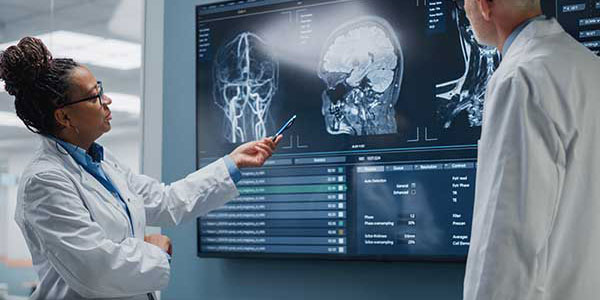


Michigan Neurology Associates & Pain Consultants is a multispecialty neuroscience center serving the Metro Detroit area through our centers located at Clinton Township and St. Clair Shores, MI. Our wide range of specialized treatments includes general, subspecialty, and pediatric neurology to interventional pain management and neuro psychometric testing.

Neuroophthalmologists specialize in treating vision-related diseases that are connected to your nervous system. The vision problems may be due to brain injury or diseases. Neuro-ophthalmology is a sub-specialty of both neurology and ophthalmology and neuro-ophthalmologists need extensive and specialized training to diagnose and treat neurological and systemic conditions that impact your vision and also the movement of your eyes. For this, after completing 4 years of the medical degree, they undergo at least 5 years of clinical training that includes their residency and fellowship programs. Our neuro-ophthalmologists are board-certified in neurology, ophthalmology, or both. While some of them receive additional training to perform surgeries, others specialize in performing specialized testing.
The neuro-ophthalmologists at Michigan Neurology Associates & Pain Consultants, MI, have the experience and the requisite training to offer the highest standards of medical care for a wide range of conditions that may lead to symptoms such as affected vision or eye-movement issues. Some of the common conditions that they treat are:
The neuro-ophthalmologic evaluation performed by our specialists is a detailed and comprehensive testing procedure that may take a few hours to complete. It includes:
Our neuro-ophthalmologists will need details about:
They will perform an in-depth eye examination that may include:
Based on your symptoms, the severity of your condition, and the scan reports, if any, our specialists may ask you to undergo a partial or complete neurological assessment to determine the coordination and strength of your optic nerves.
After reviewing their findings from your eye and neurological tests, they will offer their diagnosis of your medical condition and provide you with a personalized treatment plan for optimal results.
For inconclusive diagnoses, however, they may ask for additional testing that will enable them to offer you a more accurate diagnosis and treatment.
If you are looking for the best neurological ophthalmologist near you contact us at Michigan Neurology Associates & Pain Consultants, today for more information on the specialized diagnostic evaluations and treatments offered by our neuro-ophthalmologists and also about the other services that we offer at Clinton Township & St. Clair Shores, MI. We can help you to schedule an appointment with our specialists at the earliest.
Request an Appointment